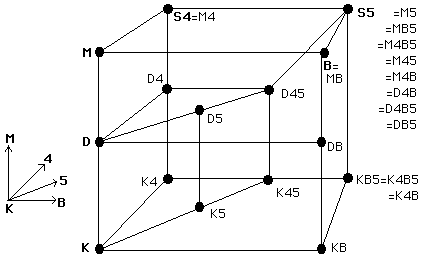"If an argument is wanted, it is this. It is uncontroversially true that things might have been otherwise than they are. I believe and so do you that things could have been different in countless ways. But what does that mean? Ordinary language permits the paraphrase: there are many ways that things could have been, besides the way they actually are. On the face of it, this sentence is an existential quantification. It says that there exist many entities of a certain description, to wit "ways things might have been". I believe things could have been different in countless ways; I believe permissible paraphrases of what I believe; taking the paraphrase at its face value, I therefore believe in the existence of entities that might be called "ways things might have been". I prefer to call them "possible worlds"." - David Lewis, pp. 84, Counterfactuals, Oxford: Blackwell.
"I do not make it as an inviolable principle to take seeming existential quantifications of ordinary language at face value. But I do recognize a presumption in favor of taking sentences at their face value unless (1) taking them at face value is known to lead to trouble and (2) taking them some other way is known not to." - David Lewis, pp. 90, Counterfactuals, Oxford: Blackwell.
Thursday, May 24, 2007
A Famous Argument from Lewis for GR
Divers cites two sorts of justification given by Lewis for GR. One he calls "The Argument from Paraphrase". Here is the passage that Divers cites:
Subscribe to:
Post Comments (Atom)

No comments:
Post a Comment